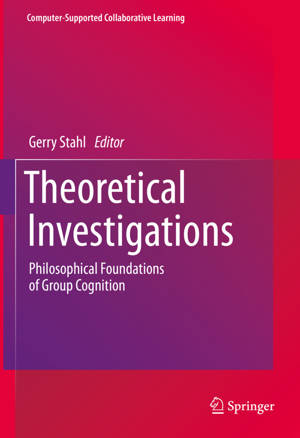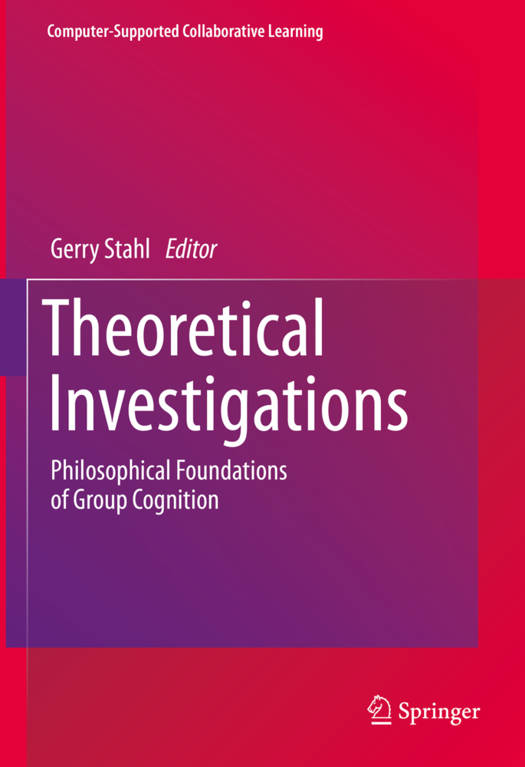
- Retrait gratuit dans votre magasin Club
- 7.000.000 titres dans notre catalogue
- Payer en toute sécurité
- Toujours un magasin près de chez vous
- Retrait gratuit dans votre magasin Club
- 7.000.0000 titres dans notre catalogue
- Payer en toute sécurité
- Toujours un magasin près de chez vous
Theoretical Investigations
Philosophical Foundations of Group Cognition
Description
Computers have transformed how we think, discuss and learn--as individuals, in groups, within cultures and globally. However, social media are problematic, fostering flaming, culture wars and fake news. This volume presents an alternative paradigm for computer support of group thinking, collaborative learning and joint knowledge construction. This requires expanding concepts of cognition to collectivities, like collaborative groups of networked students.
Theoretical Investigations explores the conditions for group cognition, supplying a philosophical foundation for new models of pedagogy and methods to analyze group interaction. Twenty-five self-contained investigations document progress in research on computer-supported collaborative learning (CSCL)--both in Stahl'sown research and during the first decade of the CSCL journal.
The volume begins with two new reflections on the vision and theory that result from this research. Representing both ethnomethodological and social-constructivist research paradigms, the investigations within this volume comprise a selection of seminal and influential articles and critical commentaries that contribute to an understanding of concepts and themes central to the CSCL field. The book elaborates an innovative theory of group cognition and substantiates the pedagogical potential of CSCL.
Theoretical Investigations: Philosophical Foundations of Group Cognition is essential as a graduate text for courses in educational theory, instructional design, learning and networked technologies. The investigations will also appeal to researchers and practitioners in those areas.
Spécifications
Parties prenantes
- Editeur:
Contenu
- Nombre de pages :
- 597
- Langue:
- Anglais
- Collection :
- Tome:
- n° 18
Caractéristiques
- EAN:
- 9783030491567
- Date de parution :
- 24-04-21
- Format:
- Livre relié
- Format numérique:
- Genaaid
- Dimensions :
- 178 mm x 254 mm
- Poids :
- 1292 g

Les avis
Nous publions uniquement les avis qui respectent les conditions requises. Consultez nos conditions pour les avis.





